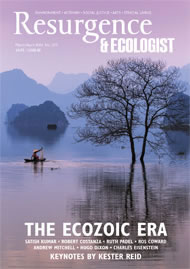As plans for the withdrawal of troops from Afghanistan are discussed and security matters are handed over, the role of the military changes from one of aggression to the training of the Afghan national army. These Afghan security forces have on occasion turned against their trainers, perhaps hinting at the potential chaos that could ensue with the over-militarised focus of plans for the maintenance of law and order.
The subtle indigenous system of jirga that could replace the military option is an age-old democratic process for resolving personal and tribal disagreements as well as crime, land and water disputes and human rights issues. The participants sit in a circle, discuss and work out their differences. Senior members are gifted adjudicators and trusted members of the community who analyse and resolve conflict, working out judicious conclusions and finally reaching the goal of forgiveness/pardon and the obligatory acceptance of a truce offer.
Loya jirga is a Pashto phrase meaning ‘grand gathering’. The best-known loya jirga in Afghan history was held in 1747 in Kandahar, when various Afghan tribes selected Ahmed Shah Durrani as the first king of modern Afghanistan, who laid the foundation of the modern Afghan state.
The loya jirga of 2002 and that of November 2012 were significant events in Afghan history, seen as the first steps towards peace and the establishment of a new democratic political order in Afghanistan. Euro-American scholars, local intellectuals and politicians alike view the loya jirga as the highest source of legitimacy of the Afghan government and its policies and decisions.
Ali Wardak of the University of Glamorgan writes: “It is argued that jirga as a time-honoured institution does not only resolve many local, tribal and national conflicts efficiently and in cost-effective ways, but also acts as a powerful channel of communication among the people of Afghanistan – particularly those in rural areas. Therefore it plays a central role in strengthening social solidarity among Afghans and contributes considerably to the maintenance of social order in Afghan society.”
There is reason to believe that jirga has the capacity to bridge tradition with modernity, to face the challenges of the 21st century, especially in post-conflict times, and to prevent the descent of post-conflict Afghanistan into the kind of chaos and civil unrest that has evolved in Iraq.
Wardak is very positive about the role of jirga and its ability to address and express popular democratically conveyed concerns. He states: “The full capacity of the loya jirga and its potential to become a more inclusive institution needs to be further explored. Perhaps the bloody war in Afghanistan could reach a swifter conclusion with reference to the past and the way the predecessors of this land maintained law and order.”
He further explains: “The time has arrived when people from different cultures and civilisations will have to engage with one another as equal partners in the resolution of national and international conflicts and in understanding their causes; it is time that different cultures learned from one another and contributed to the emerging ‘global culture’ that is reflective of its numerous constituent elements, widely shared and ethical.”
Wardak believes that jirga as a traditional institution has a role to play in the legal framework for a contemporary post-conflict justice system, providing social and cultural coherence in a country that has known warfare and ethnic difference for years. He suggests that sharia (Islamic law), the Afghan interim legal framework, and human rights principles be part of a fourfold post-war system of justice.
“The Afghan jirga as a traditional institution at the dawn of the 21st century is entering a new era of the transformation of relationships among individuals and societies at national and global levels – an era of the globalisation of social, economic and political relationships among nations and individuals.”







